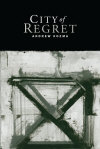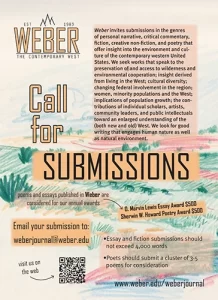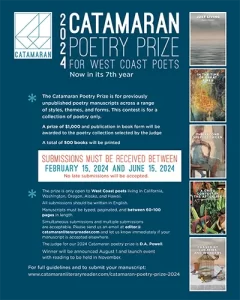City of Regret
The poems in Andrew Kozma’s City of Regret spring from a source of electric personality and emotion, striving to escape grief by staring at it unblinkingly until it becomes something else. Surrealistic images stretch and bend until they encounter recognizable truths. Metaphors, which may at first appear too close in the mirror, shift to give perspective: the poem becomes a unified field of beauty. For example, in “The Cleansing Power of Metaphor” we see:
The poems in Andrew Kozma’s City of Regret spring from a source of electric personality and emotion, striving to escape grief by staring at it unblinkingly until it becomes something else. Surrealistic images stretch and bend until they encounter recognizable truths. Metaphors, which may at first appear too close in the mirror, shift to give perspective: the poem becomes a unified field of beauty. For example, in “The Cleansing Power of Metaphor” we see:
A portrait of my father in this sterile room:
Gulliver staked by the Lilliputians, pierced
. . .
a snarl of spaghetti entrenched in sauce;
a maze of overpasses, cloverleafs, turnabouts,
HOV lanes, on-ramps, accidents at all the exits
The father ends as “a drawing scribbled through,” and by then we have shared an experience we might have wished to run from. The poem is a “list” poem, yet it travels far from the ho-hum, the standard. Each item is a switch that makes us flinch, but by the end comes a deep breath of catharsis, a feeling that “this needed to be said.”
Love and death are poetry’s most common themes, and Kozma’s poetry explores similar territory: death, the irrevocable loss, and the great enigma of love. The poems wield dissonant parts, trespass familiar borders, creating a book that is both hard and cold while still allowing the reader to feel great warmth while gazing upon a dying father, or a lover who “[will] accept my body, note the cost.” If I never understood what Dickinson meant about poetry making her so cold no fire could warm her, I do now. City of Regret is awake, buoyed by melancholy and longing, but unsentimental.
Though City of Regret is a first book by a young poet, it suggests years and lifetimes behind it. It rewrites a personal history and a reading history of Homer, Tolstoy, the Bible, and the lives of the saints. In “That We May Find Ourselves at Death,” the poet seeks a lost father, a real or imagined memory of Greece, a woman: “Does she remember our room / an oven? If we had known, would we have made love?”
Kozma’s poems are not easy. Some do not seem as if they were easy to write; you can sense the long nights behind them. Others, like “The Nuns Remove Their Noses and Lips,” though dark and powerful, feel as if they were born whole:
What did the nuns know
while the brightening abbess
prayed over the paring knife
that wailed against the whetting stone?
The nose is where temptation rests
City of Regret is a beautifully and tightly made work of art. At once, it pulls you out of yourself and connects you back. There are so many new books of poetry out there, and this is one well worth choosing.





